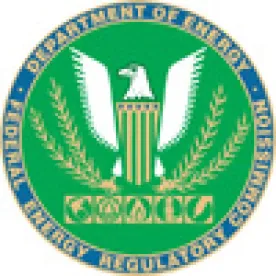FERC Annual Enforcement Update
On November 16, 2017, the Federal Energy Regulatory Commission (“FERC” or the “Commission”) released the Office of Enforcement’s (“OE”) annual report on enforcement activities (“Annual Report”) for fiscal year 2017 (“FY 2017”). Although the report, which covers activities from October 1, 2016 through September 30, 2017, merely reflects the activities and views of enforcement staff and is not necessarily representative of the views of the Commission or any Commissioner, the Annual Report can provide useful insights into compliance issues faced by market participants and staff’s expectations regarding the behavior of those participating in FERC-jurisdictional markets. Indeed, Commissioner Cheryl LaFleur expressed her view that the report should be “required reading for anyone who participates in FERC-regulated markets.”[1]
In addition to reviewing the public activities undertaken by OE, including ongoing litigation, settlements reached and audits concluded, the report also discloses the nature and outcome of certain non-public activities that were closed without action. These non-public matters are particularly instructive for market participants looking to learn from the mistakes of others and to learn under what circumstances companies can avoid being penalized even when a violation occurs.
FY 2017 Overview
The Division of Investigations (“DOI”) opened twenty-seven (27) new investigations during FY 2017, which is more than it has opened in any one year since fiscal year 2008. As in previous years, the Annual Report highlights the Commission’s continued focus on preventing fraud, market manipulation, anticompetitive conduct, and conduct that undermines the transparent and efficient functioning of FERC-jurisdictional markets. In FY 2017, FERC also focused on issues such as tariff violations and violations of Commission regulations and various provisions of the Federal Power Act (“FPA”).
In addition to opening new investigations, staff brought sixteen (16) pending investigations to a close, either with no action or through a Commission-approved settlement. Of these 16 investigations, five (5) were closed through settlement. The settlements reached resulted in the recovery of over $51 million in civil penalties and the disgorgement of over $42 million in unjust profits.[2] Many settling parties also agreed to enhance their compliance programs and submit to periodic compliance reporting as a condition of settlement. These settlements resolved matters respecting violations of the Commission’s Anti-Manipulation Rule, various tariff provisions, the Commission’s market behavior rules, and Sections 203 and 205 of the FPA respecting the transfer of jurisdictional assets and the provision of jurisdictional services. The eleven (11) other investigations were closed either because staff found no violation or because there was insufficient evidence to conclude that a violation actually occurred. Notably, the Commission did not issue any Orders to Show Cause or Orders Assessing Civil Penalties during FY 2017, but continues to litigate five (5) cases in district court pursuant to the FPA and two (2) show cause proceedings pursuant to the Natural Gas Act.[3]
The Division of Audits and Accounting (“DAA”) completed eleven (11) audits of oil pipelines, electric utilities, and natural gas companies. These audits resulted in 301 recommendations for corrective action and resulted in over $13 million in refunds and recoveries. Notably, DAA highlighted two transmission formula rate and accounting audits as examples of significant audit matters closed in FY 2017. Both audits focused on compliance with open access transmission tariff rates, terms and conditions and resulted in the subjects making substantial refunds. Through these audits, DAA also identified a number of common issues facing regulated entities and the Annual Report highlights these common pitfalls. Accounting issues and tariff matters dominated the areas in which DAA staff found consistent compliance concerns and noncompliance. Because accounting, tariff and regulatory filing violations can trigger significant time-value refund obligations, these types of easily preventable violations are low-hanging fruit that can have real dollars and cents implications.
As in previous years, self-reports were a highlight of the Annual Report and the sitting Commissioners made a point of emphasizing the value of self-reports and their value as one indicator of a robust compliance program. Chairman Chatterjee, in particular, expressed his view that self-reports can be tremendously valuable. While regional transmission organizations and independent system operators (“RTOs/ISOs”) submitted the majority of the eighty (80) new self-reports received during FY 2017, staff also received self-reports from electric utilities, natural gas companies and generators. Staff closed 121 self-reports during FY 2017, including many carried over from previous fiscal years. Following RTO/ISO self-reports, regulatory filing violations accounted for the second largest category of self-reports. In FY 2017 staff closed fewer self-reports related to natural gas transportation than in the prior fiscal year but saw an increase in the number of self-reports closed involving regulatory filing violations and qualifying facility violations. With the increasing number of renewable energy resources coming online, many of which are eligible for certification as a qualifying facility, we may see this trend continue. Developers may fail to submit regulatory filings, including qualifying facility certifications, prior to a facility making sales of test power, which could trigger FPA Section 205 violations if the seller does not otherwise have market-based rate authority or a rate schedule on file for sales of power from the qualifying facility.
Takeaways from Self-Reports and Investigations Closed with No Action
Common themes among self-reports that were closed with no action were early detection, lack of market harm and immediate corrective action. The self-reports closed with no action covered a wide-range of issues including: shipper must have title and the prohibition on buy-sell transactions; qualifying facilities; oil tariff violations; natural gas transportation; standards of conduct; electricity trading; demand response; RTO/ISO violations; FPA Sections 203 and 205 violations; failure to comply with interlocking directorate requirements; tariff violations and regulatory filing violations. Most of the self-reports that were closed without action included inadvertent error and prompt remedial action.
The investigations closed with no action also covered a wide-range of alleged violations, including tariff violations, manipulation, standards of conduct, violations of Commission orders and misrepresentation. Consistent with the past four years, the vast majority of these closed investigations involved allegations of manipulation. These investigations were closed at various stages in the investigative process, with some having progressed to the stage of taking testimony.
The following closed, non-public matters are particularly noteworthy:
-
Index Reporting – In response to a natural gas company apparently self-reporting errors in the data it provided to an index publisher, OE investigated the company to determine whether it engaged in market manipulation. OE concluded that the errors over several years resulted from the company’s sloppiness and lack of internal controls, inconsistent with the various policy statements on indices. OE closed the matter without action upon determining there was no intent to manipulate. Although this investigation may reinforce the concerns of some market participants that reporting to index publishers, which is not required, creates too great a risk of allegations of market manipulation, it also may alleviate some concerns considering OE determined there was no manipulative intent and elected not to penalize the company for failing to abide by FERC’s policies on price reporting.
-
Natural Gas Cross-Market Manipulation – OE also investigated a trading firm that engaged in “high-concentration bid-week sales at two trading hubs where the company also held significant financial short positions that would benefit from such sales,” and also purchased natural gas next-day “at a loss against index where the traders had similar-sized financial long positions.” After taking testimony and reviewing contemporaneous documents, OE closed the matter without action after concluding “the evidence and traders’ credible testimony demonstrated that the trading had been done for non-manipulative reasons.” This investigation underscores the trading patterns and related positions that may draw questions from the Commission and should remind market participants that in such circumstances, OE expects companies to provide legitimate explanations corroborated by contemporaneous evidence.
-
FPA Sections 203 and 205 Violations – An investor-owned utility self-reported that it failed to seek prior approval pursuant to FPA Section 203 related to a conductor it received from a neighboring public utility. Another matter that was closed without action involved an electric transmission provider that self-reported failing to file jurisdictional agreements related to charges for construction of a new transmission line pursuant to FPA Section 205. Both were closed without action based on the lack of harm and companies’ prompt responses. Contrast these outcomes with a 2017 settlement resolving Section 203 and 205 violations by American Transmission Company, which involved numerous facilities and contracts and was self-reported only after an initial referral to OE from the Commission.[4]
As we discussed in last year’s FERC and CFTC Annual Enforcement Update, staff’s 2016 Anti-Manipulation White Paper and 2016 Compliance White Paper provide useful insight into staff’s expectations regarding the behavior of those participating in FERC-jurisdictional markets. Reviewing those white papers in conjunction with the 2017 Annual Report may help companies and their compliance staff assess their risk profile and make ongoing enhancements to their compliance and monitoring efforts in light of the developments in FERC’s enforcement activities.
[1] FERC Open Meeting (November 16, 2017).
[2] These figures do not include the settlement reached with Barclays Bank PLC and its traders, which we discussed in our November 8, 2017 blog post (“Barclays Market Manipulation Case Settles for $105 Million, What We Learned and What’s Next?”) because the settlement occurred in fiscal year 2018.
[3] FERC v. Silkman, et al., No. 1:13-cv-13054 (D. ME) (alleged market manipulation –power); FERC v. Powhatan Energy Fund LLC, et al., No. 3:15-cv-00452 (E.D. Va.) (alleged market manipulation – power); FERC v. ETRACOM LLC, No. 2:16-cv-01945 (E.D. Cal.) (alleged market manipulation – power); FERC v. Coaltrain Energy L.P, et al., No. 2:16-cv-00732 (S.D. Oh.) (alleged market manipulation – power); Total Gas & Power North America, Inc. v. FERC, No. 4:16-cv-01250 (S.D. Tex.) (suit respecting the adjudication of Natural Gas Act violations); BP America Inc., et al., Docket No. IN13-15-000 (alleged market manipulation – natural gas); and Total Gas & Power North America, Inc., et al., Docket No. IN12-17-000 (alleged market manipulation – natural gas).
[4] In 2014, International Transmission Company (“ITC”) entered into a settlement to resolve similar violations of FPA Sections 203 and 205. In that case, ITC became aware that a jurisdictional agreement was never filed with the Commission for approval, in violation of FPA Section 205. Upon late-filing the agreement, ITC initiated a self-audit process to determine whether other violations had occurred. ITC later submitted a self-report to OE and OE then commenced its investigation.








 />i
/>i
